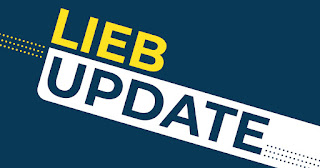A 97 page report was just issued by the NYS Senate on persistent racial and ethnicity-related housing discrimination and this report is going to change the real estate brokerage industry in NYS forever.
Are you ready?
According to the report, housing discrimination has changed over the last hundred years from being overt to subvert. However, housing discrimination clearly still exists and something has to be done about it now.
Would it surprise you to learn that in 2019 there were 28,880 reported complaints of housing discrimination in the USA? Again, twenty-eight thousand complaints!!!
Did you know that the precursor to the National Association of Realtors (NAR) required its members to discriminate as follows:
A Realtor should never be instrumental in introducing into a neighborhood a character of property or occupancy, members of any race or nationality or individuals whose presence will clearly be detrimental to property values in that neighborhood.
While this overt discrimination is less prevalent today, the report explains that:
Today, bad actors often use subtler forms of discrimination; they direct homebuyers of different apparent backgrounds toward different communities, impose more stringent financial requirements on people of color, and provide unequal services to clients based upon their race or ethnicity.
[S]ome real estate agents utilize subtle ways to discriminate, like racially coded guidance and disparate treatment in services offered.
In acknowledging that real estate brokers and agents are the gatekeepers for neighborhoods, the report makes the following categories of recommendations:
- Develop a NYS Fair Housing Strategy
- More Proactive Enforcement of Fair Housing Laws (i.e., testing, more funding, & data collection)
- Licensing & Renewal Training Requirements (i.e., more training from better instructors for licensing & continuing education with a focus on implicit bias trainings)
- Increased Penalties & Broader Accountability (i.e., $2K fines increased from $1K & managers responsible like brokers with increased experience requirements to qualify)
- Standardized Broker Policies with Public (i.e., prospect identification, exclusive broker agreement requirements, & pre-approval for mortgages)
- Internal Brokerage Policies (i.e., brokerages need updated policy manuals with fair housing statements & explanations of the consequences for violations)
- State & Local Governments to Affirmatively Further Fair Housing (i.e., enforcement is everyone's responsibility)
- Brokers Must Open Offices in Communities of Color (i.e., 12 firms control 50% of listings, but only about 20% to 33% of the listings in minority communities)
- More Diverse Brokerage Workforce (i.e., NAR's members are 80% white; need Diversity, Equity, & Inclusion initiatives to attract talent to the industry)
There is very little truth in the old refrain that one cannot legislate equality. Laws not only provide concrete benefits, they can even change the hearts of men some men, anyhow for good or evil.
It's time to change from being part of the problem to being part of the solution. Are you ready?


















